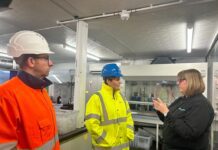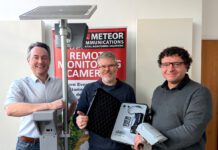Chelsea Technologies’ Dr John Attridge is to present on the topic of “Traceability and linearisation of in situ fluorescence measurements using the new V-Lux sensor” at the SWIG “Latest developments in water sensors” workshop on 7 March in Cambridge.
The firm will also be demonstrating the Lux family of portable and on-line systems for measurements of algae parameters, hydrocarbons, CDOM and bacteria (tryptophan-like fluorescence).
“Field fluorometers have traditionally been challenged by interfering fluorescence from non-target compounds, high turbidity levels and high concentrations which can directly impact the accuracy of the readings obtained,” said Dunning. “This new fluorometer includes three fluorescence channels as well as absorption, turbidity and temperature channels which allow corrections from these potential interferences, providing unambiguous data of the target compounds and providing range levels previously unobtainable from field fluorometers.”
V-Lux is said to be ideally suited for monitoring within both water and wastewater processes, as well as environmental monitoring for pollution. Applications include monitoring of road and airport apron run-off, bathing waters and shellfish waters monitoring, and discharge monitoring within the oil and gas sector.
Physical and chemical sensors are at the heart of virtually all measurement systems. In past decades, they have become smaller, more rugged and stable. The SWIG workshop will highlight developments and improvements to sensors and sensing technologies. It will discuss how information supplied from reliable sensors is vital for the development of big data analytics and creates the options for novel applications and alternative measurements. The overall goal will be to provide information to allow water companies to make better measurements in the future.








